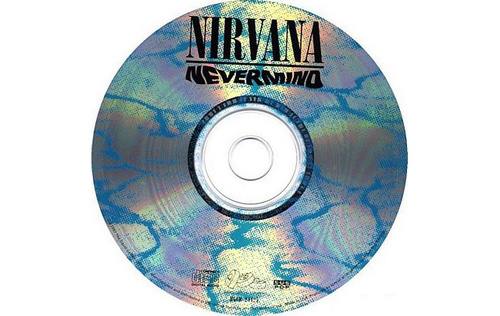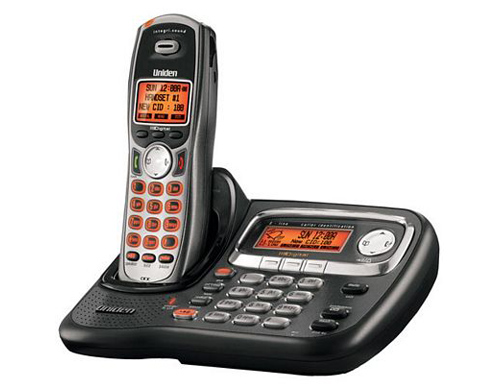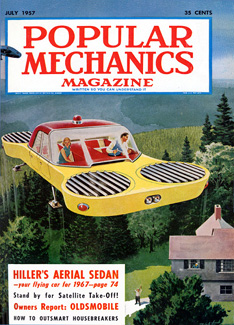
Monthly Archives: January 2011
Ten Things That Work In Video Games, But Not Real Life
Written by Jeremy M. Zoss
We all know that the rift between video games and reality is a large one, despite our best efforts to claim otherwise. But the differences are quite obvious once we look at how mechanically, video games are totally, foolishly outlandish. Like, maybe they were conceived by a kid with a severe case of the silly-brains.
So, we present to you a fairly in-depth study of big ways video games differ from reality. Some are physics-based, while others exemplify how we should avoid practical application of video game techniques at all costs. I present to you now our list of ten things that happen in video games, but don’t cut it in real life. Enjoy!
10. Gunshot Wounds Don’t Just Fade Away
Example: Call of Duty: Black Ops
Video games are separated from real life by a very wide margin, especially in war-themed video games (contrary to how they market themselves). 99% of us will never be shot in real life, yet 99% of us will be shot in a video game. Shot in real life: big time ouch — hospitals, morgues, rehab, yeesh. Shot in video game: 3 seconds behind cover and you’re good to go. So in case anyone gets inspired to participate in a massive-scale land war because of a video game, please do some more research.
9. Tilting Your Guitar Won’t Make You Rock Harder
Example: Guitar Hero
From this video, it is easy to see that tilting your guitar back toward you in short, caustic jerks does not, in fact, make you rock harder in real life. In the game, sure, maybe you’ll earn a few extra points and some lights will flash and you’ll be the talk of the fake underground venue — but in real life, you look like a total dweeb.
8. Rocket Jumping Will Literally Kill You Instantly
Example: Team Fortress
If you ever happen to be in a dicey situation, and in dire need of escape, please don’t take that rocket launcher resting on your shoulder, point it at the ground, bend you knees, and shoot. Pulling that trigger as you spring your self off the ground will literally be the last fucking thing you ever do. I guarantee it.
7. You Can’t Carry 15 Guns And Still Walk Like A Normal Human Being
Example: Most FPS
Video game characters can be encumbered by dozens of weapons without losing a single ounce of litheness. James Bond could still fly down a hallway in GoldenEye 64 with a bevy of weapons in hand, cycling through them at will. But in real life, you’d have to be a ‘roid guzzling gym rat to move with any sort of grace. And either way you’d look like an idiot.
6. Life Doesn’t Let You Skip Through Boring Conversations
Example: Mass Effect
But hot damn we wish it did. Have you ever sat in on a long, dry conference call or been roped conversation with one of those door-to-door magazine salesmen? It seems to happen to me all the time — and I wish nothing more for whatever force that is driving my life to smash the A button and get me the hell through it. But it never happens, damn it.
5. Going In Water Doesn’t Instantly Kill You
Example: Red Dead Redemption
While it is true that being in water can kill you, video games have it all wrong. Going waist-deep into a large body of water will not kill you instantly. Even if it is tremendously cold, or tremendously hot, you probably still have a good minute or so before you start to expire. In games like Grand Theft Auto: Vice City and Assassin’s Creed, our near-invulnerable heroes just can’t handle a little h2o, but for some reason, all those bullets flying into them only make them stumble briefly.
4. Double Jumping Doesn’t Really Work
Example: Super Smash Bros.
The developers of games like Super Smash Bros, Crash Bandicoot, and Dragon Buster(old school) thought it would be a good idea to add an extra jump at the end of a regular jump to make a double jump. That concept is tantamount to “Oh, I have a beer in one hand, the remote in the other. How am I going to scratch my nether-regions? Oh that’s right, I’ll just use my other, third hand.” Doesn’t work that way — science will drag you quickly, and awkwardly, to the ground.
3. Hiding In Shadows Doesn’t Render You Invisible
Example: Splinter Cell Series
We’ve all played a stealth game, heard an enemy go “There he is!” and dove for the shadows to evade their wrath. In most games, that tactic works well, keeping us safe and allowing for normalcy to return after moments. But in real life, hiding in the shadows only makes you creepy.
2. Eating Food Off The Ground Doesn’t Make You Healthier(Thanks, The Onion!)
Example: Most 1980s and 1990s games
In many video games, it is customary to gather food supplies from the floor and put them in your mouth for restored health. In real life, that is how people get serious diarrhea, or worse. I suppose if you are hard-up for some grub, ground-food will suffice. But any regular shmoe should never eat food off the ground. Even if it is a giant, tasty-looking carrot.
1. If You Collect Coins, You’re Either A Nerd, Or You’re Homeless
Example: Super Mario Series
For some reason, game developers have had a long love affair with coin collection. Numerous games have rewarded players for capturing large quantities of coins, oftentimes with no explanation of the coinage whatsoever. But we all know that there are only two types of people in real life that collect coins: total nerds, and the homeless. The only real difference is whether you keep them in display cases or a paper cup.
Bonus: Shanghai 1990 vs 2010

Forever faithful

As the death toll from devastating flooding in Brazil continues to rise, a single picture drives home the sense of loss.
Leao, a medium-sized brown mutt, lies next to the grave of her owner, Cristina Maria Cesario Santana, who died in the catastrophic landslides caused by heavy rain. This AFP/Getty picture was taken on Saturday, the second consecutive day that the dog refused to leave the woman’s grave at the cemetery in Teresopolis, near Rio de Janiero.
Brazilians are bracing for more rain, fearing more landslides after waves of muddy water swallowed towns in the country’s worst flood disaster on record.
At least 655 deaths were reported in a mountainous region of Rio de Janeiro state, northeast of the city of Rio.

The Best Times to Buy Anything in 2011
Written by Kevin Purdy

Good things, and better prices, come to those who wait. Buy your furniture now, laptops in April, appliances in September, and make other better-timed purchases with our buying guide, and you’ll save a few bucks with off-season, inventory-moving prices.
We first did a Best Times to Buy chart in January 2010. Soon after that, we offered (almost) monthly updates and explications of what was on sale, and why. Our commenters, being the awesome people they are, continued offering more tips as we went along, and knocked down a few of our ideas. So we’ve fixed up our big chart, fine-tuned the individual months’ listings, and present for you here our Best Times to Buy Anything in 2011.
Click the image for a larger view.
Now, onto the what and why of each month. Much of this information is drawn from these sources, along with tips and validations from our commenters. We also leaned a little bit from Mark Di Vincenzo’s handy book, Buy Ketchup in May and Fly at Noon: A Guide to the Best Time to Buy This, Do That, and Go There.
First Quarter (Jan/Feb/March)

- Gas grills & air conditioners: They’re obviously off-season, but it’s not like “next year’s model” will be remarkably better or different.
January
- Bicycles & Sporting Goods: Not only is it prime off-season pricing, you’ve got the attention of salespeople who think they’re talking to someone who’s for real about their exercise.
- Furniture: It’s both a lull and a changeover for the showrooms, so find that dining room set and haggle.
- Digital frames: Hey, where’d all last month’s buyers go? Pick up the leftover stock on the cheap.
- Carpeting: Most people are focused on holidays, not renovations, and it’s before the big tax rebate buying season, according to Carpet SuperSite.
February
- Tools: The kinds with batteries and cords and lots of warnings, because their makers put on a big push.
- Chocolate (after Feb. 14): Because, well, you know.
- Digital cameras: The newest models are out, fresh from the trade shows, so anything left over goes cheap.
March
- Luggage: Halfway between buying seasons, stores eager to move.
- Frozen foods: Goofy, but it’s “National Frozen Food Month.” And you can buy and freeze.
- Winter coats & sports gear: Winter fun season is coming to an end. Where to find end-of-season goods? Try commenters’ suggestions.
- Boats: It’s the end of boat show season; you’ve got the upper hand.
Second Quarter (April/May/June)

- Televisions: Japanese manufacturers’ fiscal years end in March, so old inventory must go to make the cut.
- House (for availability):It’s a tricky thing, house buying, but if you do it early enough to see how the house survived winter, but not at the height of warm-weather open house season, a good deal can be found.
- Boots & winter wear: Nobody’s buying, except your think-ahead self.
April
- Cruises: Cruise lines are moving ships around the world this month; Book and travel short-notice this month; they’ll be happy to have passengers. (via BKIM).
- Car accessories & parts: Prime car-fixin’ season is coming up, so old inventory must go. Commenters point out best spots for online car parts.
- Laptops: Might be inventory, or some other reason, but laptops go cheap this time of year.
- Fabric: Craft stores are shifting from heavier winter fabrics to lighter spring stuff.
- Cookware: Graduations are around the corner, so get in on that going-away gift sale (and consider buying stainless).
- Vacuum cleaners: The new models arrive in June, so this here is clean-out time.
- Sneakers: Spring has sprung, charity races are plenty, and sneaker makers are targeting less serious runners.
May
- Patio furniture: New stuff hits the floor, old stuff needs to go. Also check your local garage sales.
- Party supplies: Whether or not you’re hosting a graduation party or early-spring picnic, stock up now for later.
- Cookware: Graduations, weddings, and cheaper goods at both the high and low price points.
- Vacuum cleaners: Just like last month, clearing out old models before June roll-outs.
June
- Gym memberships: Nobody’s making resolutions, and it’s nice weather out. Get your haggle on.
- Tools (June 1-20): Father’s Day sales don’t require birth certificate proof, now, do they?
- Suits (June 1-20): Same as with tools: fathers need suits, but so might you, asJCMasterpiece tells it.
- Dishware: Like May, June is a wedding month, so dishes are cheaper, whether or not you’re registered.
- Off-season sports gear: If you support a team, now might be the time to show it, as college and pro gear for most sports is off-season.
Third Quarter (July/Aug/Sept)

- Big appliances:Showrooms are moving out last year’s models, making room for new stuff, and all the scratch-and-dent pieces that are totally operational are offered at deep discounts.
July
- “Older” computers: As in not just arriving. Intel and AMD and system makers start ramping up for new stuff now, discounting old stuff.
- Furniture: Stores make an inventory push, so if you like something, make an offer.
- Broadway tickets: It’s off-season for NYC tourism, so now’s the time to snag those half-off tickets. StubSearch.com’s CEO agrees.
- Grills (after July 4th): Wait for it, wait for it … now, grab that grill, while stores shift toward back-to-school and yard gear.
August
- Older computers: Same as July; newer stuff is on its way.
- Laptops: Big-box stores and direct retailers want everyone going back to school to tote a laptop.
- Outdoor toys & camping equipment: They take up lot of space, so as the season ends, stores want rid of them—at 65% off, even.
- Kids’ clothing: Don’t have kids? Buy gifts, or surprise a nephew/niece, maybe.
- Wine: Small-run, eclectic wines can be found early in the harvest, often cheaper.
- Linens & storage containers: For the college crowd, but we all occasionally need to tuck stuff away and cover a bed. Macy’s, for example, has deep sales.
September
- Cars: It’s the sweet spot between two years’ inventory. Watch a car you like on the lot, come in later to make an offer.
- Wines: As with August, but September is more of the traditional wine-buying season.
- Laptops: More back-to-school discounts.
- Holiday airfare: You’re about eight weeks out from Thanksgiving, so it’s a good time to buy those air tickets.
- Grills & lawn mowers: Stores are moving ’em on out and making room for colder-weather gear.
Fourth Quarter (Oct/Nov/Dec)

- Shrubs, bushes, bulbs, etc.: If you have a cellar or other area to store plants over the winter, you can jump in now and get these items, plus ever-plant-able bulbs, very cheaply.
October
- Jeans: Whatever jeans they couldn’t sell for back-to-school, it’s yours now, just cheaper.
- Cookware: Is October too early for holiday deals? Is cookware a gift? Manufacturers and retailers offer a resounding “yes.”
- Health insurance: You may not really have another time to buy it, if you’re employed full time. During open enrollment, look around and see what’s new in the offerings.
- Toys and games: Sales are often offered to kick-start the holiday season, but maybe you, too, enjoy a good video game or board game.
November
- Candy: Post-Halloween glut.
- Aluminum foil & plastic wrap: Weird, but true.
- Cookware: Early holiday sales make it just a bit cheaper.
- Wedding dresses (starting Nov. 15): As with next month, it’s a slow season, and just before cutesy Christmas engagements.
- HDTV & home theater gear: From now until after the Super Bowl, the gear is new and the prices are relatively good.
December
- Wedding dresses (and other wedding gear): Few are buying, but many to-be-marrieds are arriving after Christmas engagements. Move the price around to your liking. Commenter Chispea agrees.
- Tools: Winter home repairs are less appealing, but just as viable in most cases—and the tools are cheaper.
- Champagne and sparkling wine: Believe it or not, this is both the time it’s prevalent, and the time to buy it.
- HDTVs and home theater equipment: The deals are a bit better in January, but now is a good time to look before the big push in spring.
- Off-color cars: Fancy a purple, orange, gold, or other off-color ride? You can probably get it for a steal right now as a year-end write-off for the dealership.
What deals did we miss? Which off-season discounts have you been the most pleased to encounter? Share your savvy bits of buyer power in the comments.
Comparison: Verizon iPhone 4 & Two Hot New Android Smartphones
Written by Ian Thackston

January 2011 is an awfully exciting month for Verizon Wireless employees and customers. At CES 2011, the company announced several 4G LTE phones including the Motorola Droid Bionic and the HTC Thunderbolt. Just a few days after the largest tech week of the year, Verizon Wireless announced details about the Apple iPhone 4. With many great choices, selecting the phone that works best for you can get awfully overwhelming. Fortunately, we’re back with yet another infographic with an in-depth look at three of our favorite upcoming Verizon Wireless smart phones.
We hope that this will help you find the device that best fits your daily needs. If you have any questions, feel free to ask below and we will try to answer them the best we can. If you like this, feel free to share this with friends and family. We even have a convenient share box off to the right. If you found an error or have suggestions for improvements, feel free to let us know.
Upgrade your Life: Simple solutions to high-tech problems
Written by Ben Patterson
Can’t work your iPhone with your winter gloves on? Got a scratched DVD that’s skipping? Or how about a work PC that signs you out the moment you step away from your desk? The MacGyver-approved answer may be hiding in your junk drawer.
In this week’s episode of Upgrade Your Life, Yahoo! News’s Becky Worley delivers some simple, everyday solutions for what might appear to be daunting high-tech problems, starting with:
1. Touchscreen phones that won’t work when you have gloves on
The capacitive touch displays on the latest and greatest Android and iOS handsets are tops when it comes to tapping out messages with a light touch. Winter gloves, however, will block the electrical charge from your fingertips that capacitive screens use to register a tap — bad news if you’re trying to answer a call in a blizzard.
Becky’s solution: Cut a tiny slit in your wool gloves (assuming you don’t mind slicing up your winter wear) to allow a finger to pop out whenever you need to start tapping.
Don’t want to cut holes in your gloves? Try the Pogo Stylus, a pencil-sized metallic stick with a specially made tip that works with capacitive displays.
Related:
2. Dirty cell phone cases
That case you bought for your smartphone looked pretty spiffy when you first slipped it on. After a few months, though, you’ll be in for a rude shock when you take the case off and look inside. Where did all that gunk come from? On second thought, don’t tell us.
Becky’s solution: If it’s a one-piece silicone case, just toss it in the dishwasher — done. Beware, though: Plastic cases with multiple, glued-on parts will come apart if you give them the dishwasher treatment.
3. Wet gadgets
News flash: Gadgets and water rarely mix. If you do manage to leave your cell phone, camera, or other battery-powered gear out in the rain — or worse, drop them in a toilet — the prognosis is usually pretty grim.
Becky’s solution: Before you give up hope, try dropping your soaked gear into a Tupperware container full of rice to draw out the moisture. (Check out more details on this method from Popular Mechanics.) Or, as a general preventative measure to keep moisture away, save some silica gel packs (you know, the ones you’ll find in boxes of new shoes or beef-jerky packages) and stuff them in your cell phone or camera case.
Related:
How to Save Your Wet Cellphone: Tech Clinic [Popular Mechanics]
8 Clever Uses for Silica Gel [Popular Mechanics]
4. Scratched DVDs and CDs
There’s nothing quite as annoying as a skipping music CD or a DVD that randomly jumps seconds or minutes ahead, without warning. In some cases, you might be dealing with a dirty laser in your CD or DVD deck; more often, however, the culprit is a scratched disc.
The good news is that it is possible to repair scratches in the polycarbonate plastic coating that protects the underlying layer of data on a DVD or CD, as long as the scratch isn’t too deep.
Becky’s solution: Polish the scratches with a little furniture cleaner, perhaps with a follow-up dose of car polish. Just be sure to start from the center of the disc and rub outward, in a straight line; whatever you do, don’t rub in circles.
Related:
How to Recover Scratched DVDs [eHow]
5. Work PCs that sign you out too quickly
Code-clearance NSA operatives performing top-secret data entry at secure terminals should probably skip this tip. For the rest of us, however, here’s an easy way to keep your paranoid PC from signing you out the moment you turn away from the screen.
Becky’s solution: Take off your watch (assuming you still have a watch, of course) and lay your mouse on top of its face; the ticking hands will fool the optics in your mouse into thinking it’s still in motion.
6. Not enough D batteries for your flashlight
The power’s out, and you’ve got your flashlight — minus one more D battery. D’oh!
Becky’s solution: If you’ve got a spare C battery floating around in your junk drawer, you’re in luck; just drop it into the D-cell slot and fill the remaining space with a stack of quarters. Sounds crazy, but Becky promises it’ll work. (Just make sure to pick up some more D batteries the next time you’re in the hardware store.)
Related:
Quick hack: The $1 C-to-D adapter [Evil Mad Scientist Laboratories]
Bonus: Before you put pics on Facebook, check the background

Real Eyes

Bonus: Seems like I found a real pirate!

The best Mario-like movie

12 Technologies On The Verge of Extinction
Written by gizmodo
Twelve teetering technologies: will they survive or die? MaximumPC rounds up its Dirty Dozen techs that they expect to die out by 2020—or at least come close. Here’s who’s on the chopping block.
You will likely disagree with some of our assessments. But you’re wrong and we’re right. At least we think we’re right. And if we’re one day proven wrong, hopefully you’ll have forgotten our bold stance and bravado.
And we’re not taking the easy route here either. We’re not calling for the death of obvious targets such as fax machines. No, we like to think we’re dealing with rather more controversial subjects, both on the thumbs-up and on the thumbs-down side of things. And if you opt to disbelieve us by buying into one of our doomed concepts, well, don’t say we didn’t warn you.
The Doomed
1) Pre-recorded Physical Media
 As online connectivity, in either its wired or wireless guise, expands toward ubiquity, as data transmission rates increase, and as the proliferation of Internet-centric devices in our society continues unabated, there’s little doubt the Web will soon be the hub for all our personal electronic entertainment. How could it not?
As online connectivity, in either its wired or wireless guise, expands toward ubiquity, as data transmission rates increase, and as the proliferation of Internet-centric devices in our society continues unabated, there’s little doubt the Web will soon be the hub for all our personal electronic entertainment. How could it not?
Why then—if we can go online to get our goodies faster and with far less hassle, far less cost, and far less packaging—would pre-recorded physical media exist at all? We think it won’t.
The transition is already happening all around us. Downloadable music of course, but downloadable games and indeed on-demand gaming services too. Today, we find operating systems (Google’s Chrome) that live only in the Cloud, Blu-ray players that emphasize Internet connectivity, and recently-announced Netflix subscriptions that favour streamed over shipped movies. The list is long and it only grows longer with each passing day.
We know people who haven’t bought a CD or rented a movie disc in years. That will very shortly be the rule rather than the exception.
2) Stereoscopic (with glasses) 3D TVs

Wearing stereoscopic (3D) glasses in a movie theatre—where the environment is optimal, the screen is gargantuan, and the nerd stigma of the glasses themselves is minimized—is one thing. But at home, it’s a different story. Not only will you invest a ton o’ bucks on a 3D-capable television and 3D glasses for everyone who watches said TV, but even then the content, the quality, and the three-dimensional impact are lacking.
And one other inescapable fact—those glasses are a total hassle. If you already wear prescription glasses, they’re a hassle. If you watch TV while you’re doing other things, they’re a hassle. If you’re one of those who suffer from headaches or the eye strain that 3D glasses can cause, they’re a hassle. And they’re not exactly chic, are they?
Put all of this together and add a healthy dose of consumer confusion and apathy over the whole thing, and you begin to get an idea why 3D TV, in its current form, isn’t exactly taking the world by storm. Indeed, it’s struggling.
We humbly feel stereoscopic 3D TV has already passed its due date and is nothing more than a money pit for those who buy into it. Sure, the technology will continue to be with us for a bit yet, but the long-term prognosis is anything but optimistic. For starters, with pictures and prices that are better than ever, good old 2D TV is looking damn good these days. But waiting in the wings is an alternate – and theoretically superior – concept to stereoscopic 3D TV called “autostereoscopic” TV.
In autostereoscopic TV, eyeglasses are rendered passé and displays are ingeniously fitted with plastic lenticular sheets that refract light so each eye sees an ever so slightly unique perspective. Toshiba has recently released one such TV into the Japanese market and is set to flaunt larger iterations at 2011’s CES (Consumer and Electronics) Show.
Beyond that lies the promise of holographic TV, wherein fully realized three-dimensional subjects essentially “float” in the centre of your room (a la Princess Leia in 1977’s Star Wars). Sadly, commercially available holographic TVs are still a decade away.
Still, given the alternatives, the lack of content, and the convolution surrounding today’s brand of 3D TV, we can’t help but feel the end is nigh.
3) eBook Readers
 There’s little doubt, even to the doughtiest doubters, that Amazon’s Kindle and its ilk are darned nifty innovations. A single electronic gizmo that weighs less than many paperbacks and is slim enough to slide in a jacket pocket, yet accommodates, at least temporarily, all the books you and everyone you know could ever hope to read? Sounds great, especially now that current models offer incredible battery life, awesome displays, and commendable ease of use.
There’s little doubt, even to the doughtiest doubters, that Amazon’s Kindle and its ilk are darned nifty innovations. A single electronic gizmo that weighs less than many paperbacks and is slim enough to slide in a jacket pocket, yet accommodates, at least temporarily, all the books you and everyone you know could ever hope to read? Sounds great, especially now that current models offer incredible battery life, awesome displays, and commendable ease of use.
So why are they on our terminal list? Because as good as they are at the job they do, that’s pretty much the only job they do. Like a standard pocket knife versus its far more compelling Swiss Army cousin, a Kindle simply can’t touch a tablet, be it iPad or something else, when it comes to versatility.
Granted, the Kindle in particular has all those job-specific advantages we just outlined, but given that the far more versatile iPad is already used by many as their sole e-reader, and that its bookish panache will only improve with time and future revisions, one can reasonably assume it will take larger and larger bites from the standalone e-Book reader market. And let’s not forget smartphones. For the casual reader who places more importance on portability and singular devices, they certainly suffice.
The standalone eBook reader won’t die quietly, but in this day of escalating convergence and the increasing capabilities of top-tier converged devices, its time is marked.
4) Consumer-Level Hard Drives

When it comes to the potential demise of the consumer-level hard drive, the question isn’t “if.” It’s “when.”
And, to a lesser degree, “what.” Like Julius Caesar, the hard drive, once the beating heart of its domain and certainly one of the most often replaced/upgraded PC components of all time and thusly one of technology’s better money-makers, is under attack from all sides.
The most obvious immediate threat comes by way of flash memory solid state drives. Sure, solid state remains a far more expensive per-gigabyte solution, but it’s also much faster and (probably) much more durable. Full-scale solid state adoption likely won’t occur until the price gap closes substantially more than it already has, but we’re talking years here folks – not decades.
In the meantime, don’t expect life to get any easier for the good old hard drive. Consider, for example, the explosive growth of ultra-portable convergent devices such as smart phones and iPads. Truth is that for many of us – particularly younger folks and/or those who can get along fine without the capabilities of a full-fledged computer – PCs, laptops, and the hard drives inside them are already prehistoric.
For this growing legion of mobile hipsters, hard drives never stood a chance. Instead, they eschew space-hogging operating systems in favour of Google’s “virtual” Chrome. They store their data on built-in or removable memory cards. And in many cases, they take full advantage of the Cloud.
Indeed, if flash memory, PC/laptop apathy, and/or the possible extinction of traditional operating systems don’t drive the final nails into the coffin of the consumer-level hard drive, the Cloud likely will. Amongst the big industry players, Cloud rhetoric is high. And certainly one needs only look at the sudden proliferation of server farms all across this country (Apple’s new North Caroline monster, for example) to see the physical manifestation of it is also alive and well.
Today, hard drives are crazy cheap. So too were floppy drives and HD DVDs as their expiration date neared.
5) Keys

Keys suck. They get lost, they get stolen, they’re annoyingly inconvenient if your hands are otherwise occupied, and they poke holes in your clothing.
This is no big revelation. Society as a whole has known for a very long time the degree to which keys suck. And until we banish them forever to the land of 8-tracks and wood-paneled station wagons, they will continue to do so.
Fortunately, that banishment has already begun. Several years ago, keyless residential door hardware first appeared in the retail marketplace, enabling homeowners nationwide to open their front doors without first fishing through all their pockets. More recently, push-button automotive ignition systems began their migration from high-end luxury vehicles to more affordable cars, in turn deterring theft, reducing the chances of locking those naughty keys inside a car, and making the whole entry and exit process easier even for us of less spectacular incomes. And of course there’s biometrics—a science that in many ways has already delivered us from old school security measures in all walks of life.
Having said all that, it’s also clear that weaning ourselves from the cold, metallic grip of our jagged foes won’t be easy while there are approximately ten bazillion of them in circulation. Still, if today you can enter your home, start your car, and gain access to your 30th floor office without ever using a key, can the joys of a completely key-free future be that far off?
6) Handheld Gaming Consoles
What if you devised a really good handheld game? A game so good that a handheld console juggernaut like Sony or Nintendo wanted exclusivity? Wouldn’t that be cool? Wouldn’t that be a great position to be in?
Of course it would. Right now. But what if it all went down a few years down the road, when everyone and their goat are walking around with whatever music player/camera/computer/phone/tablet gizmo that’s become the Next Big Thing? And what if this gizmo also played a ton of decent games? And what if all these people and goats didn’t want to be bothered carrying around a second gizmo whose sole purpose was to play a select few exclusive titles?
Such is the inevitable consequence of technological evolution. While phones and tablets and other assorted do-all goodies don’t currently have the jam to be true gaming leviathans, they’ll soon be good enough that that most game-players won’t care. And that, in the grand scheme of things, is what shapes the industry.
The Survivors
1) Digital Music/Media Players
The end of the reign of the personal music player was foretold many years ago, while the Sony WalkMan was still in its diapers. Too clunky, they said. Too niche. Too anti-social. Today in the world of the iPod, most of that reasoning has obviously dissipated. Still, the doomsayers won’t go away. Now, they tell us no one will want dedicated music players when full-blown media (video) players and smartphones and the like can do so much more.
We humbly disagree. Maybe we don’t necessarily want more. Maybe we prefer crazily tiny music players to larger multipurpose devices. Maybe we’re in the gym or jogging or otherwise cavorting in tight surroundings where chunkier devices aren’t nearly so appropriate. And maybe we don’t want the expense—both at the time of sale and via subscription—that more sophisticated devices bestow upon us.
We don’t deny that a shrinking standalone personal music player market is ahead of us. Convergence is certainly here to stay. But we don’t think the baby iPods or Clips are going away until they can insert chips directly under our skin. The sheer number of personal music player users is huge—too huge to see their device of choice go away like the Kindle will.
2) Landline telephone

Facing stiff, unrelenting competition from Voice over Internet Protocol (VoIP), text-based communications, and of course, the cell/smart phone, Plain Old Telephone Service (POTS) certainly appears headed for the virtual junkyard. And indeed, recent studies suggest that a growing number of Americans have or are in the process of abandoning their landlines completely in favor of one of today’s many alternatives.
But it simply isn’t that cut and dried. Landlines – at least corded landline phones – are a saving grace during prolonged power outages. They will continue to play a role in the business world and in large homes, where multiple handsets are common. Moreover, depending on usage, minimal-use landline rates are now comparatively cheap. And it almost goes without saying that the existing POTS infrastructure is absolutely mammoth.
Though to many a purely redundant technology, chances are the venerable landline will survive until we have a better way of dealing with the instances where it is most invaluable. And that’s a long, long time from now.
3) Internal Combustion Automobile Engine

Let’s get this straight right from the outset – the hybrid technology found in cars such as the Toyota Prius and Honda Insight is most definitely not the next major step in automotive propulsion. It is instead a gas/electric stop-gap measure that’ll carry us over to whatever technology gains traction in the immediate future. Fact is that many gas-powered cars – and many more in the 2012 model year if we can believe what we’re hearing from companies like Hyundai and Ford – run much cleaner than their old school gas counterparts and deliver fuel economy not far off that of current hybrids. And they’re a hell of a lot cheaper and more functional to boot.
So what does that leave us? Fuel cells? Maybe, and certainly Hyundai’s recent announcement that it’ll have a fuel cell-powered SUV by 2015 lends credence. But fuel cell technology is nothing new – it’s been with us for decades now and still has significant hurdles to clear, not to mention a still-weak infrastructure.
Battery-powered electric vehicles like the freshly unveiled Nissan Leaf may point the way to the future, but right now, with a 100-mile range between charges, the Leaf clearly isn’t the answer for anyone who drives appreciable distances. And what about Chevy’s much-hyped Volt? It certainly delivers a longer range, but it does so because alongside its battery is a – you guessed it – small gasoline combustion engine. That the miniature Leaf will cost you in excess of $30,000 and the Volt more than 40 large obviously doesn’t help with adoption.
There are, of course, other camps that propose other solutions. Indeed, there’s no shortage of proposed concepts, each of which is backed by a lot of people hoping theirs will one day be the ultimate internal combustion engine killer. And that may be the biggest obstacle of all. Do you select a given technology, only to discover several years from now that your chosen road is a very expensive dead end? Investing a few hundred bucks in Betamax or HD DVD is one thing. Dropping this much bread is something completely different.
We’re all for the greening of America and we’d certainly like to stick a shiv into the fat gut of Big Oil. But if we were choosing a car in the foreseeable future, the lure of a 40 MPG Hyundai or Ford or “clean diesel” VW seems a far more logical step than pure speculation. And that’s why we feel the internal combustion engine will be with us for some time to come.
4, 5 & 6) The PC, The Computer Keyboard, & The Computer Mouse

We lump three of the devices we feel aren’t facing obsolescence under one heading because, let’s face it, when they do reach their Waterloo one day far, far into the future, there’s a good chance they’ll do it in close proximity to one another.
Let’s first look at what is arguably the centerpiece of the entire technological revolution – the desktop personal computer. Rumors of its demise have circulated since the 1990s, when laptops came into vogue, and they’ll undoubtedly continue. But despite the rise of all-in-ones, increasingly capable laptops, tablets, smartphones, touchscreen technology, and a host of other mutations of the original concept, the desktop as we know it shall survive.
Why? For starters, because it’s really, really easy to upgrade and/or repair. Merely pop out the offending piece and replace it with something better. It’s also relatively affordable. Just try buying a portable system with the same specs as your box, and you’ll quickly discover the pain of financial withdrawal. And that gets us to our third point – power. Whether you’re a gamer, a videographer, a 3D designer, or anyone who truly exploits the CPU, the GPU, the memory, and the storage, the PC will long remain your go-to device.
The venerable keyboard and mouse, given all the alternatives bandied about in the media, would at first glance seem to have even less chance of growing old gracefully. But first glances, as any nightclub goer will tell you, aren’t always correct. Speech recognition, as potent as it theoretically is, won’t kill the keyboard for a long time yet because it simply refuses to evolve to a point where it’s truly useful. Touchscreens, as much as they’re currently touted in the mobile world, just aren’t the answer for those who use – really use – a PC. Does anyone really think leaning forward to access a touchscreen is a superior method of desktop control? As for projection keyboards, on-screen keyboards, and laptop-style touch pads, we have just one word. Puh-lease.
Sure, we hear how new gadgets are cool and how they’ll reshape this and that and give us all a fresh perspective on things. But in the end, when hard work needs doing or hard games need playing, the versatility, power, exacting control, ease of use, and yes, the familiarity of the PC and its major peripherals will win out for at least another generation.
Bonus: Simpsons — The XXX Parody
10 Things We Were Supposed to Have by 2011 but Don’t
Written by teagueb
Okay, so we gave it a good decade before we started bitching…but seriously, people, we were supposed to be way ahead of where we currently are technologically by this time. We landed on the moon over forty years ago, and since then, we’ve been resting on our national laurels. Sure, we have computers and the internet, but those were advancements in porn delivery and massive timesuckery more than anything else.
Here’s a short list of all the stuff we were promised, decades ago. Get on the stick (and off Facebook) scientists and visionaries. The world needs a Tony Stark!
10. Flying Cars

Sort of the cliché invention of the future, but think of how much better traffic would be if we could use layers of “roadway”? Driving today is tantamount to every parking lot in the world being ground-level-only. This is something that would obviously require major infrastructure changes, but it’s something we’ve been promised since the 1950s. And it would make those undercarriage lights finally make some sense.
9. Teleportation

Better than flying cars: just make physical travel itself obsolete. Granted, there’s that pesky issue of the nature of the soul when you’re essentially breaking down the composite atomic make-up of a person, and re-constituting them elsewhere…but if we can get past that bugaboo, then we solve both transportation issues as well as one of the mysteries of faith. Bonus!
8. Food Pills
As The Jetsons clearly predicts, at some point we’ll all be eating small capsules that supplant normal meals, at least on a day-to-day basis. (Let’s assume that we still gather for real food now and then—which would make Sunday suppers, dinner dates, and holiday meals all the more special, right?) Think of it—an invention like this would potentially fix a multitude of issues, from food production to the obesity epidemic. Suck it, Jillian Michaels!
7. Renewable Energy

I don’t care if it’s solar, wind, or Slurm: the time for our dependence on energy creation by resources that we find but can’t create should be long over. No joke: if guns-and-god Americans knew just how much our continued dependence on fossil fuels has put us into debt to the Middle East, even they’d all be resentfully learning Arabic right now.
6. Sonic Showers

Normal people like to be clean, and shower at least daily. But who says it has to be water? Star Trek has long had references to Sonic Showers, which do the same (or better) job while not using up one of the precious resources of both the earth and a space-bound Starship: water. No word on what it sounds like to sing in a sonic shower, though.
5. Hyperspace

Either this, or Warp Drive, depending on whether your Star preference is Wars or Trek. Whatever you call it, it’s the ability to span vast expanses of space without actually having to live through the time that it would take to travel that far using normal velocity. We’ll need this to explore just our solar system, let alone to break out of the ol’ galactic ball and chain and see what else is out there.
4. Automatic Translators

And speaking of “they’re out there,” it’s tough to talk about possibly communicating with them when we can’t sufficiently communicate with ourselves yet. We don’t necessarily need a Threepio-type protocol droid for this (though that would be awesome), but don’t we have the ability to run translators for every known language on the planet yet? You’d think the UN would have had these years ago, instead of depending on human translators that could on a whim claim that the Ugandan ambassador is saying “May I mambo dogface to the banana patch?”
3. Force Fields

Think of how amazing this would be, especially if you could set it to keep out something specific, like pests, or weather, or drunken exes. Camping would be a little easier. So would personal defense. The only downside is that umbrellas would become obsolete, which sucks because umbrellas are pretty awesome.
2. Sexbots

We may actually be close to this one. Thank god for the Japanese, those brilliant kinky fuckers.
1. Really, Any Kind of Robots

Seriously, why do I not yet have a robot butler? Granted, they will eventually turn on us and kill us all, but frankly, I’d be willing to live with that possibility if I didn’t have to clean my toilet or make my coffee for a while.




